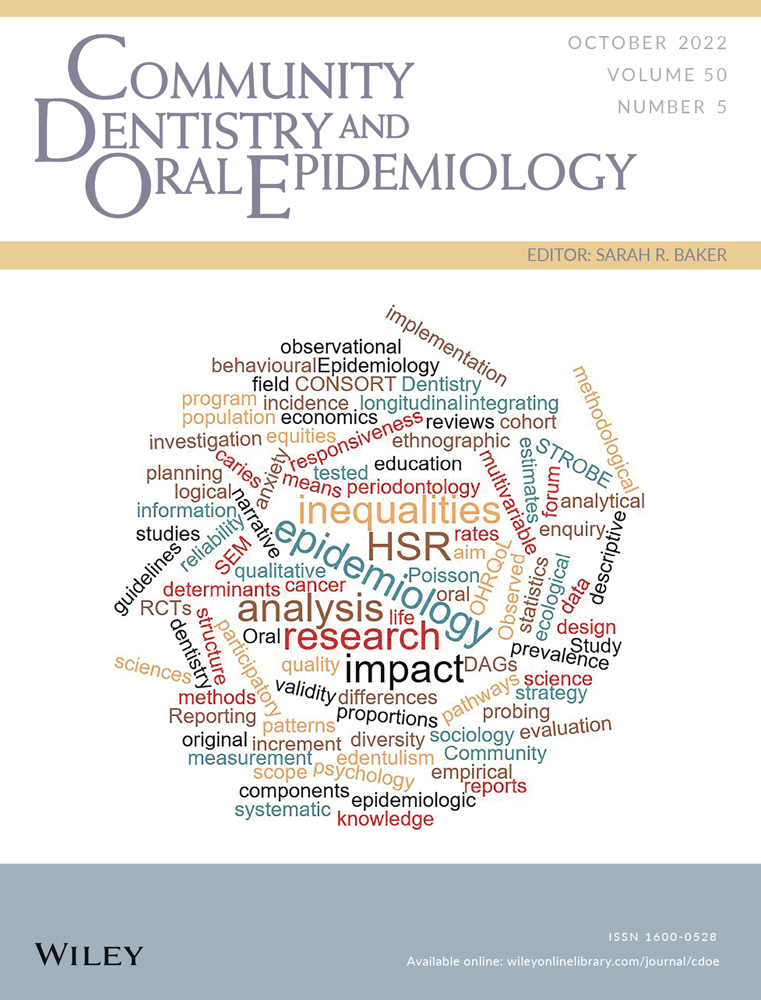A qualitative study of dental professionals' and patients' knowledge and perceptions of the impact of periodontal disease on systemic health and quality of life
Abstract
Objectives
This qualitative study of dental professionals and patients with periodontal disease: (1) explored their knowledge and perceptions on the impact of periodontal disease on systemic health and quality of life (QoL); (2) assessed their familiarity with QoL instruments used to measure the impact of periodontal disease.
Methods
In-depth semi-structured face-to-face interviews were conducted with 10 dental professionals and 10 patients selected using purposive sampling. Audio recordings of the interviews were transcribed verbatim, coded and analysed using NVivo software (version 11, QSR International), followed by an inductive thematic analysis of the data.
Results
Three themes were identified for the dental professionals: (1) knowledge of periodontal disease, systemic health and QoL; (2) experience in managing patients with periodontal disease to improve their QoL; (3) perceived value of having a disease-specific QoL instrument for periodontal disease. Three themes were identified for patients with periodontal disease: (1) knowledge of periodontal disease, systemic health and QoL; (2) experience and perception of how periodontal treatment can improve QoL; (3) perceived value of having a disease-specific QoL instrument for periodontal disease. Both groups were knowledgeable about the relationship between periodontal disease, systemic health and QoL and had experienced how periodontal treatment could improve QoL. Both groups also agreed that a disease-specific QoL instrument for periodontal disease would be beneficial.
Conclusions
Both the dental professionals and patients with periodontal disease were aware of the relationship between periodontal disease, systemic health and QoL, including the benefits of periodontal treatment in improving QoL. The value of developing a disease-specific QoL instrument for periodontal disease was recognized by both groups.
CONFLICT OF INTEREST
The authors declare no conflict of interest.
Open Research
DATA AVAILABILITY STATEMENT
The data that support the findings of this study are available on request from the corresponding author. The data are not publicly available due to privacy or ethical restrictions.




